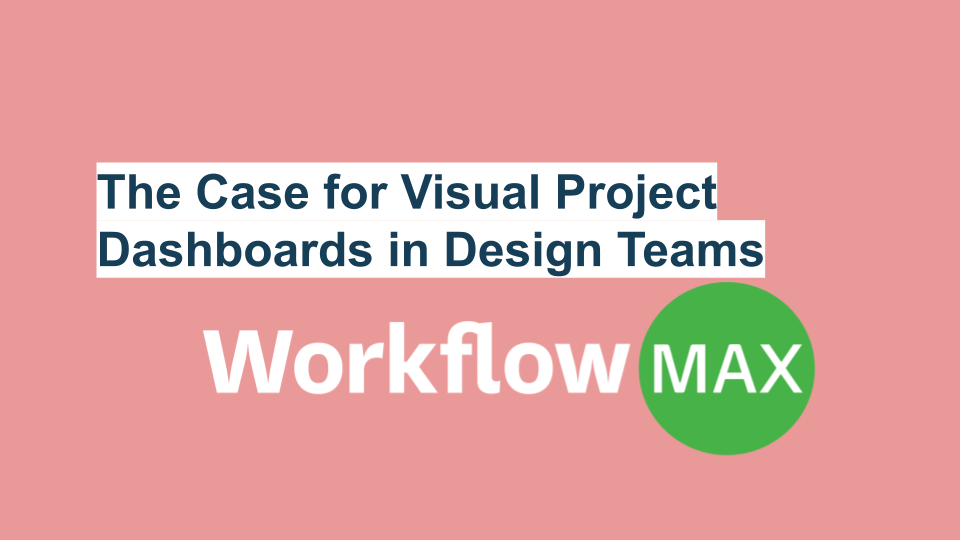TL;DR: Visual project dashboards help design teams track key metrics, manage timelines, and stay aligned with creative and business goals. By converting complex data into easy-to-read visuals, dashboards support real-time decisions and efficient collaboration. WorkflowMax offers customisable, intuitive dashboards with features like risk tracking, resource panels, and Agile-friendly views—empowering teams to stay productive, focused, and on track.
Visual project dashboards are essential tools for design teams. They aggregate and display key project metrics in an accessible, visual format. These dashboards act as a central hub, allowing teams to monitor project progress and performance effortlessly.
Design teams benefit from dashboards by gaining quick insights into project statuses. This capability keeps creative work aligned with business goals. By presenting data in a clear, concise manner, dashboards enable informed decision-making based on real-time insights.
We offer customisable dashboards that highlight critical job-related tasks and business performance metrics. With real-time data, teams can adjust strategies swiftly and make confident decisions. This helps design teams stay on track and meet their goals.
Dashboards in design team operations
Dashboards show real-time project progress, enabling teams to make informed decisions. By turning complex data into visual formats, they make information easy to understand, helping design teams track key metrics and adjust strategies when needed. This clarity keeps projects on target, meeting both creative and business objectives.
Creating effective visual dashboards for design teams involves several best practices.
- Identify the Target Audience: Understand who will use the dashboard and their specific needs. This ensures relevance and usability.
- Define Objectives: Clearly set the goals for what the dashboard should achieve. Align these objectives with the overall business and creative goals.
- Select the Right Metrics: Choose metrics that are crucial for tracking project progress and performance. Ensure these metrics provide actionable insights for the team.
- Display Data Clearly: Use visuals like charts and graphs to present data in an engaging manner. This helps in quick understanding and decision-making.
- Simplicity and Logical Organisation: Avoid clutter by focusing on essential information. Organise data logically to reflect its importance and flow, enhancing user experience.
WorkflowMax’s real-time performance dashboards are customisable, allowing teams to highlight critical tasks and metrics. This flexibility ensures dashboards meet the unique needs of each design team.
Using visual dashboards for project management
Visual dashboards enhance project management for design teams by integrating methodologies like Agile and Scrum. Dashboards streamline workflows and efficiently manage resources. They provide real-time insights into project progress, ensuring teams stay aligned with timelines and deliverables.
Incorporating Agile and Scrum practices, dashboards help manage scope and improve communication. Performance Snapshot: Offers an overview of project completion and budget status, keeping everyone informed.
Resource Utilisation (Productivity) Panel: Visualises team workloads, ensuring optimal resource allocation. This feature helps project managers make data-driven decisions to balance tasks effectively.
Risk Tracker: Summarises active risks and mitigation statuses, allowing teams to address issues proactively. This contributes to smoother project execution and reduced uncertainties.
Interactive dashboards enhance engagement and offer customisation: Users can tailor views to specific needs, making data relevant and actionable.
Drill-Down Capabilities: Provide detailed analysis of underlying data.
This clarity boosts team collaboration and productivity, allowing teams to focus on creative work while managing timelines and deliverables efficiently.
Improving dashboard usability and engagement
Improving usability and engagement in visual dashboards is essential for design teams. Intuitive layouts make dashboards user-friendly. When information is organised logically, team members find the data they need quickly, improving decision-making.
Smart colour choices make dashboards easier to read and highlight important information. A consistent colour scheme helps differentiate between data points, making complex information accessible. Important insights stand out at a glance.
What are you waiting for checking out our dashboards?



.png?width=704&name=unnamed%20(15).png)
